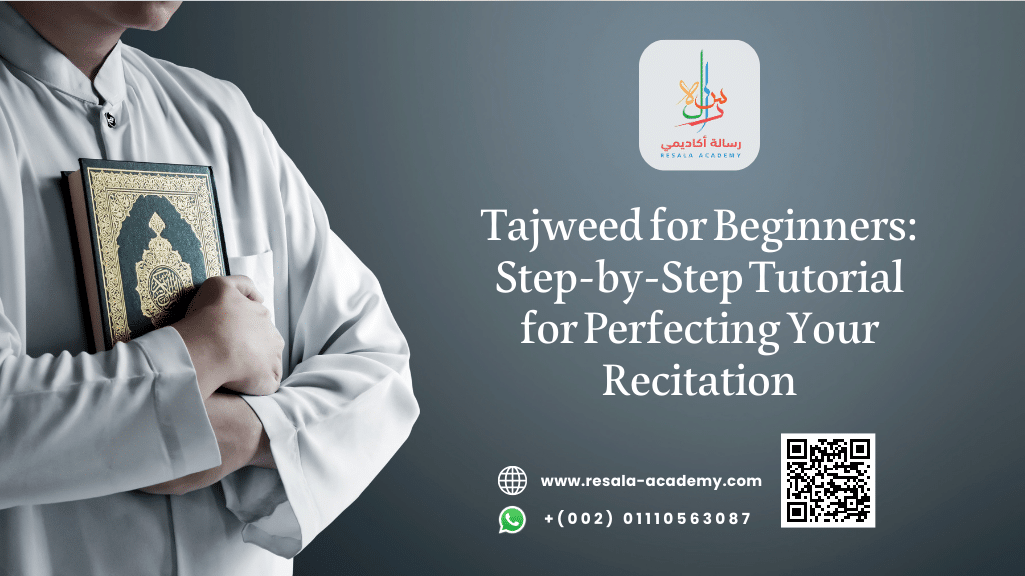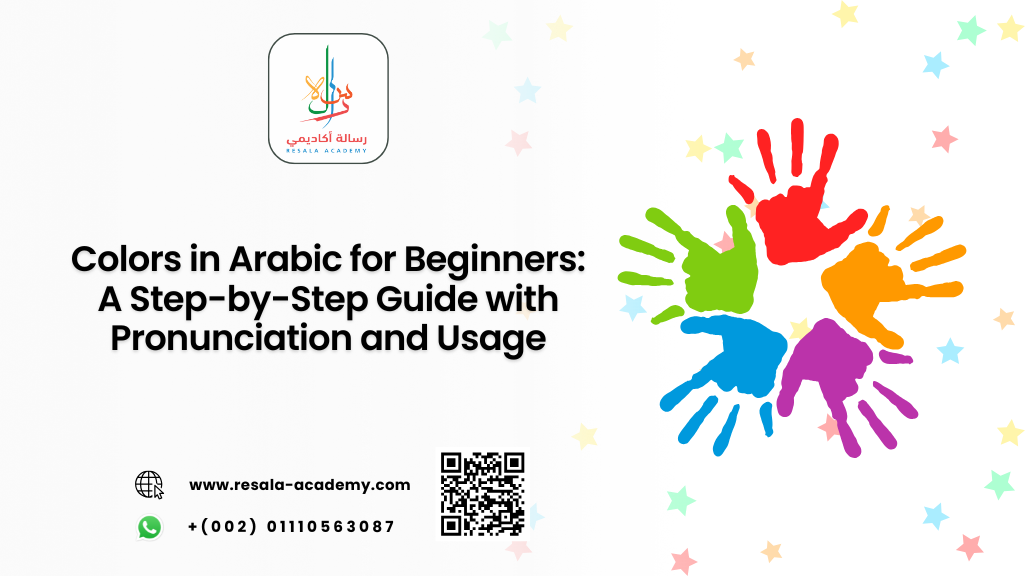Table of Contents
Tajweed for Beginners: Step-by-Step Tutorial for Perfecting Your Recitation
Welcome to our comprehensive guide on Tajweed for beginners! If you’re looking to perfect your recitation of the Quran, understanding Tajweed’s rules is essential. Whether you’re just starting or looking to refine your skills, this step-by-step tutorial will help you grasp the fundamentals and overcome common challenges in mastering Tajweed. Get ready to dive into the world of beautiful Quranic recitation with confidence and precision!
Importance of Tajweed for Beginners
– Tajweed is crucial for beginners as it ensures the proper pronunciation of Arabic letters and sounds when reciting the Quran.
– Mastering Tajweed helps beginners maintain the integrity and authenticity of the Quranic text, preserving its meanings and nuances.
– Proper Tajweed enhances the beauty of recitation, making it melodious and pleasing to listen to.
– Beginners who focus on Tajweed develop a deeper connection with the Quran, enhancing their spiritual experience during recitation.
– By learning Tajweed from the outset, beginners build a strong foundation for advanced studies in Quranic sciences.
– Tajweed helps beginners avoid making mistakes in recitation, which is essential for accurately conveying the message of the Quran.
– Understanding and implementing Tajweed rules can improve beginners’ understanding of the Arabic language, as they learn about its pronunciation and articulation.
– Learning Tajweed can also enhance beginners’ memorization of the Quran, as proper pronunciation aids in memorization.
– As beginners progress in their journey of learning Tajweed, they develop a sense of discipline and patience, which are essential qualities for studying the Quran.
– Finally, by learning Tajweed, beginners fulfill their duty as Muslims to recite the Quran correctly and honor its sacredness.
Understanding the Basics of Tajweed Rules for Beginners
Tajweed, the science of reciting the Quran correctly, is crucial for every beginner to understand. It focuses on proper pronunciation, articulation, and rhythm when reciting the holy verses. One fundamental aspect of Tajweed is knowing how each letter should be pronounced from its specific point in the mouth or throat.
Beginners should pay attention to characteristics like elongation (madd), pauses (waqf), and stops (iltiqaa). Learning about these rules helps in mastering the correct pronunciation and flow while reciting. Understanding concepts such as heavy (thick) and light (thin) letters will also enhance your grasp of Tajweed principles.
Additionally, beginners need to learn about proper vowel sounds (‘harakat’) that affect word endings and meanings. The rules regarding silent letters (‘sakin’) are equally important for accurate recitation. By grasping these basic Tajweed rules, beginners can lay a strong foundation for perfecting their Quranic recitation skills.
Common Challenges in Tajweed Recitation for Beginners
One common challenge beginners face in Tajweed recitation is the proper pronunciation of Arabic letters. Each letter has its unique characteristics and sounds that must be mastered to recite Quranic verses accurately.
Another hurdle is understanding the rules of elongation (madd) in recitation. Differentiating between the different types of elongation can be tricky for newcomers, but with practice and guidance, it can be overcome.
Maintaining proper articulation while reciting with Tajweed is also a challenge. Beginners may struggle with maintaining consistency in their pronunciation throughout a passage or verse.
Properly applying the rules of stops and pauses (waqf) can also be challenging for beginners. Knowing when to stop, pause, or continue reading without breaking the flow of meaning requires attention to detail and practice.
Additionally, mastering the correct intonation (tarteel) while reciting Quranic verses poses a challenge for beginners who are not accustomed to the rhythmic patterns required in Tajweed recitation.
Another common challenge for beginners is memorization. Tajweed recitation often involves memorizing verses and passages, which can be overwhelming for those who are new to it.
Understanding the meaning of the words being recited can also be a challenge for beginners. Many Arabic words have multiple meanings, and without proper understanding, it can be challenging to apply the correct Tajweed rules.
Lastly, maintaining consistency in practicing Tajweed can also be a challenge for beginners. It takes time and dedication to master the intricacies of Tajweed recitation, and staying motivated to practice regularly can be difficult for some individuals.
Practical Tips for Improving Tajweed Recitation
– Practice regularly: Consistent practice is key to improving your Tajweed recitation skills. Set aside dedicated time each day to focus on perfecting your pronunciation and rhythm.
– Listen to recitations by skilled Qaris: Listening to expert reciters can help you grasp the correct tone, melody, and enunciation required for proper Tajweed. Follow along with a Mushaf to enhance your understanding.
– Seek feedback from knowledgeable individuals: Don’t hesitate to ask teachers or experienced individuals for constructive criticism. Their feedback can pinpoint areas of improvement and guide you towards better recitation.
– Slow down your pace: Many beginners tend to rush through their recitations, leading to mistakes in pronunciation. Take your time, enunciating each letter clearly and melodiously.
– Break down complex rules into manageable segments: Tajweed encompasses various rules that may seem overwhelming at first. Focus on mastering one rule at a time before moving on to the next for gradual progress.
Resources for Learning Tajweed: Books, videos, and online courses in bullet points
For beginners looking to enhance their Tajweed recitation skills, there are various resources available that cater to different learning preferences. Books on Tajweed offer a comprehensive study of the rules and principles in written form, making it easy to refer back to key concepts. Videos showcasing Tajweed demonstrations can be beneficial for visual learners who prefer watching demonstrations.
Online courses provide interactive lessons led by experienced instructors, allowing beginners to practice and receive feedback in real time. These courses often include quizzes and assignments to reinforce learning. Additionally, mobile apps focused on Tajweed offer convenient access to lessons anytime, anywhere.
Podcasts featuring discussions on Tajweed topics can deepen understanding and provide valuable insights into proper recitation techniques. Virtual forums and discussion groups allow learners to connect with others on similar journeys of perfecting their recitation skills.
Resala Academy Offers Online Tajweed for Beginners Classes
Resala Academy is a leading platform that provides online Tajweed classes specifically tailored for beginners. These courses are designed to help individuals learn the fundamental rules of proper Quran recitation in a structured and interactive way.
The academy offers a comprehensive curriculum that covers all aspects of Tajweed, including pronunciation, articulation points, and rhythmic patterns. Students can expect to receive personalized attention from experienced instructors who are dedicated to helping them improve their recitation skills.
By enrolling in Resala Academy’s online Tajweed classes, beginners can benefit from the flexibility of studying at their own pace and convenience. Whether you’re a complete novice or looking to refine your existing knowledge, these courses cater to students of all levels.
With easy access to study materials, practice exercises, and feedback sessions, learners can effectively enhance their understanding and application of Tajweed principles. Joining Resala Academy’s online classes is an excellent opportunity for beginners to embark on a rewarding journey towards mastering the art of Quranic recitation.
FAQs
– What is the best way to practice Tajweed for beginners?
To begin with, it is essential to understand the basic rules of Tajweed before you start practicing. You can find a good tutor or enroll in an online course that teaches Tajweed. Once you have a grasp of the basic rules, it is important to practice regularly. Start with short surahs and recite them slowly, paying attention to your pronunciation and applying the rules you have learned.
– How long does it take to perfect Tajweed?
The time it takes to master Tajweed varies from person to person. It depends on factors such as your dedication, practice routine, and natural ability. With consistent practice and guidance from a teacher, one can expect to see significant improvement within a few months.
– Is learning Tajweed necessary for the correct recitation of the Quran?
Yes, learning Tajweed is necessary for the correct recitation of the Quran. The science of Tajweed helps us understand how each letter and sound should be pronounced properly according to its specific rules. It ensures that we are reciting the Quran as it was revealed to Prophet Muhammad (peace be upon him).
– Can I learn Tajweed on my own?
While self-study is possible, it is recommended to learn Tajweed from an experienced teacher who can guide you through the proper pronunciation and application of the rules. A teacher can also correct any mistakes and provide feedback, which is essential for perfecting Tajweed.
– Are there any online resources available to learn Tajweed?
Yes, there are many online resources available to learn Tajweed. You can find video tutorials, courses, and interactive tools that can help you learn and practice Tajweed at your own pace. However, it is important to ensure that the source is reliable and follows the correct principles of Tajweed. It is always best to learn from a qualified teacher.
– Is it necessary to have a good voice to recite the Quran with Tajweed?
No, having a good voice is not necessary for reciting the Quran with Tajweed. The focus should be on proper pronunciation and applying the rules of Tajweed correctly. With regular practice and guidance from a teacher, anyone can improve their recitation regardless of their natural voice.
– How can I find a good teacher or course to learn Tajweed?
You can ask for recommendations from friends or family members who have studied Tajweed before. You can also search for reputable online courses or local tutors who have experience in teaching Tajweed. It is important to do some research and read reviews before choosing a teacher or course.
Conclusion
In mastering the art of Tajweed, beginners embark on a journey that not only enhances their recitation but also deepens their connection to the Quran. By understanding the importance of Tajweed, grasping its basic rules, overcoming common challenges, and implementing practical improvement tips, beginners can make significant strides in perfecting their recitation.
With dedication and consistent practice, along with utilizing resources like books, videos, and online courses – including those offered by Resala Academy – beginners can confidently navigate the complexities of Tajweed. Remember that learning Tajweed is an ongoing process that requires patience and perseverance.
As you delve into this beautiful science of Quranic recitation as a beginner, embrace each step with enthusiasm and commitment. Let your passion for perfection drive you forward on this rewarding journey toward honing your recitation skills through the principles of Tajweed.




